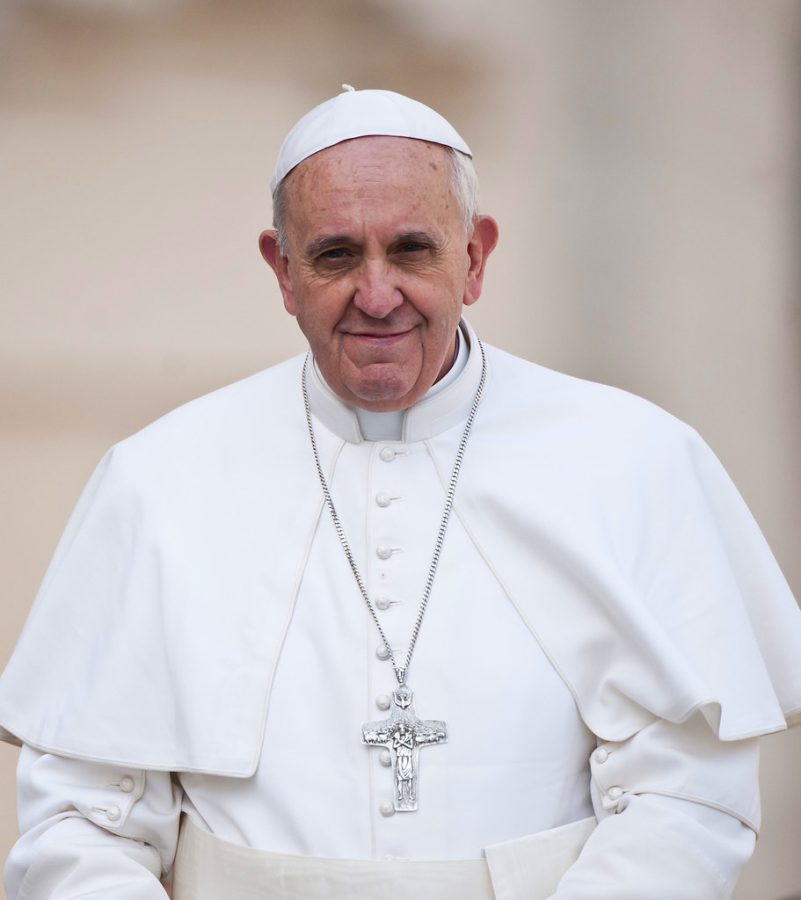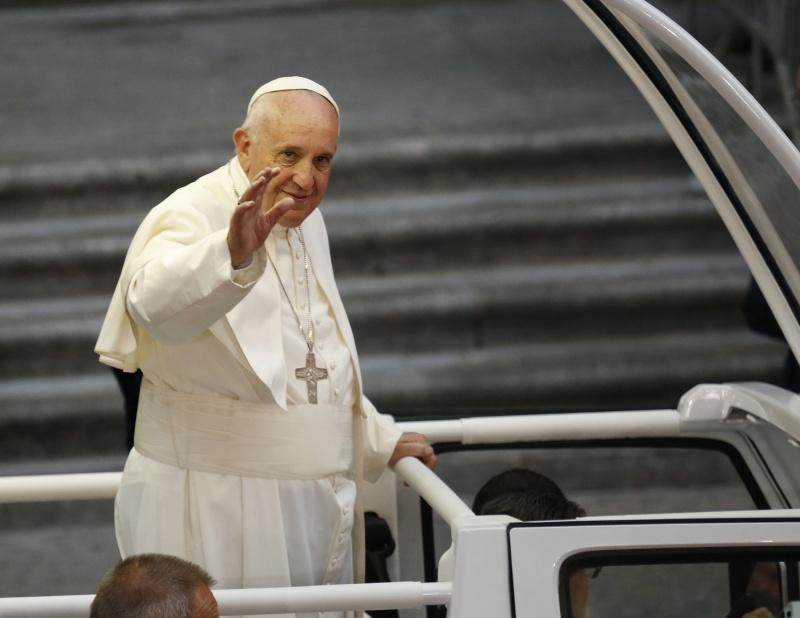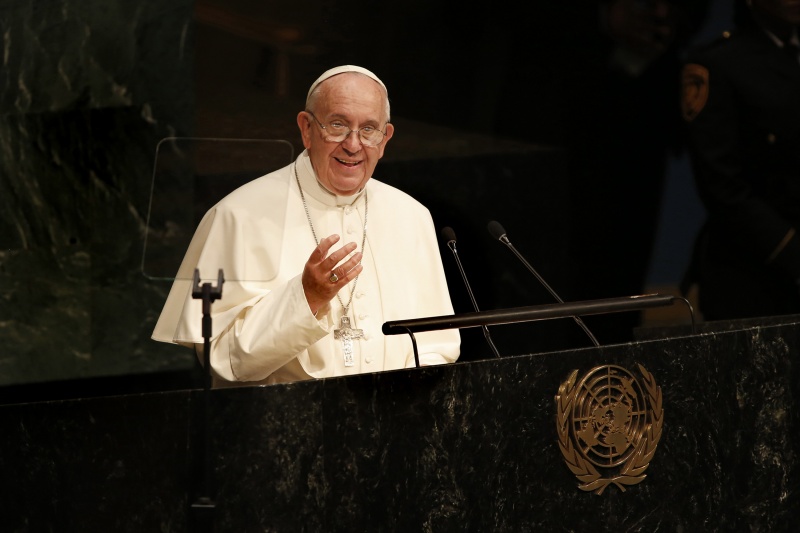The ‘Radical’ Pope Strikes Again
Pope Francis’ statement on the decriminalization of homosexuality does not go far enough
THE CATHOLIC CHURCH OF ENGLAND AND WALES VIA FLICKR
Pope Francis condemned the criminalization of homosexuality but fell short of welcoming LGBTQ+ people into the Catholic Church.
February 8, 2023
In an interview published by AP News on Jan. 25, Pope Francis said that homosexuality is not a crime and called for it to be decriminalized in all countries. He then added — though there is an argument about whether he said this as a statement or rhetorical argument — that homosexuality is still a sin.
There is some discourse over whether the pope explicitly meant “homosexuality is a sin,” which he clarified in a letter that this was imagining a hypothetical response, but the semantics are not what matters as much as the people who are defending his words and using them as an excuse to be homophobic. The Catholic Catechism says that being LGBTQ+ is not a sin in itself, as people cannot change the way that they are born. However, acts of homosexuality are still sins, making it seem that the only way that LGBTQ+ people are accepted as nonsinners in the eyes of the Catholic Church is by being celibate.
It is important to acknowledge that by specifying that homosexuality is not a crime, the pope’s statement has the potential to save lives in the 10 nations where homosexuality is punishable by death and help those in the 67 countries where LGBTQ+ people can be jailed for their sexuality. The pope is an influential person, and his statements hold weight. This interview may also provide relief and affirmation to LGBTQ+ Catholics.
Saying that people shouldn’t be punished by law for who they are is a breadcrumb of equality.
But this is not enough. Is this the best the pope can do? Saying that people shouldn’t be punished by law for who they are is a breadcrumb of equality. That is not the radical love of Jesus Christ.
Furthermore, where is the same (bare minimum) support for other members of the LGBTQ+ community? There wasn’t a mention of transgender or nonbinary people, and the word “lesbian” is treated like a sin itself. There are few actions that we can realistically expect the pope to take, but there could be more inclusive language when discussing centuries of oppression faced by the LGBTQ+ community.
The Catholic Church cannot expect its LGBTQ+ followers to feel accepted if its doctrine requires them to forgo love and continues to debate if their existence should be criminalized. There is a very rigid purpose for sex in Catholic doctrine: the production of children. So, it is probably too far of a reach to hope for a kind of acceptance where LGBTQ+ Catholics could have life path options aside from celibacy. The statement that people should not be killed for whom they love might be as radical as Francis will get, and due to centuries of tradition, that might be all we can expect.
On the subject of LGBTQ+ identities, there are not any actions from the Catholic Church that I can support. As someone who is not (and was not raised) Catholic, I don’t believe that being gay is a sin. And regardless of that, I do not believe that any member of the LGBTQ+ community should feel that acting in accordance with their identity — through safe and consensual romantic acts — is something that should be shamed and condemned.
With this in mind, I have questions about the practice of welcoming LGBTQ+ people into Catholicism, something Francis called on Catholic bishops to do. Welcoming LGBTQ+ people into a religion that does not wholly accept them and will not commit to loving them will invite more shame and guilt into their lives. No matter how accepting of those who are LGBTQ+ you are, if you believe that their actions of love are damning and that they are fundamentally sinners, you are inviting unwanted and unnecessary pain and guilt into their lives.
While this statement calling for the decriminalization of homosexuality by Francis is the most radical that a pope has made, it is not enough. LGBTQ+ Catholics, as well as LGBTQ+ people around the world, deserve more support and should not feel shamed for whom they love in a religion that preaches love for everyone.














